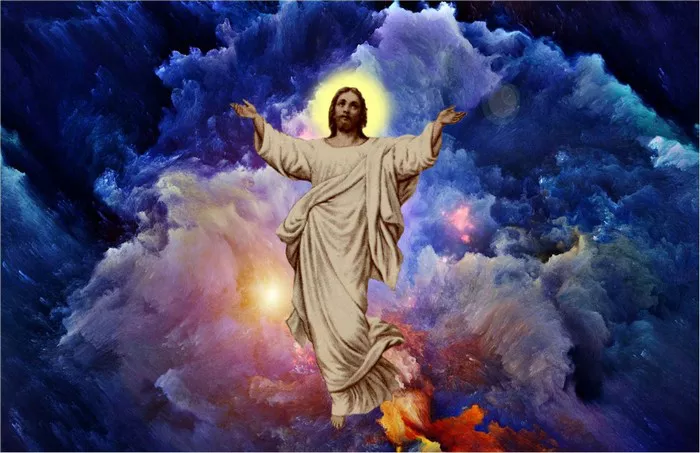In the annals of biblical narratives, few events captivate the imagination and stir theological contemplation quite like the resurrection of Lazarus by Jesus Christ. This pivotal moment, recounted in the Gospel of John, not only showcases the extraordinary power of Jesus but also raises profound questions about the nature of life, death, and the divine purpose. Why did Jesus, the Son of God, choose to resurrect Lazarus? To unravel this enigma, one must delve into the depths of theological inquiry, historical context, and the profound symbolism inherent in this miraculous event.
A Tale of Love, Loss, and Divine Intervention
The story of Lazarus begins with a poignant scene of illness and death. Lazarus, a dear friend of Jesus, falls gravely ill, prompting his sisters, Mary and Martha, to send word to Jesus, beseeching him to come and heal their brother. However, Jesus delays his arrival, allowing Lazarus to succumb to death. Upon reaching Bethany, Jesus is met with grief-stricken mourners and the lamentations of Mary and Martha, who express their belief that had Jesus been present, their brother would not have died.
In the face of this profound sorrow, Jesus exhibits a range of emotions, from sorrow at the loss of his friend to indignation at the power of death. It is in this emotional backdrop that Jesus performs one of his most astonishing miracles: the raising of Lazarus from the dead. Commanding the stone to be rolled away from the tomb, Jesus calls forth Lazarus with a resounding voice, and to the amazement of all present, Lazarus emerges from the grave, restored to life.
The Significance of Lazarus’ Resurrection
The resurrection of Lazarus holds multifaceted significance within the broader narrative of Jesus’ ministry. Firstly, it serves as a prelude to Jesus’ own impending resurrection, foreshadowing the triumph over death that would culminate in the Easter story. By raising Lazarus from the dead, Jesus demonstrates his authority over death itself, affirming his divine identity and the promise of eternal life for those who believe in him.
Moreover, Lazarus’ resurrection serves as a tangible manifestation of Jesus’ compassion and love for humanity. In delaying his arrival and allowing Lazarus to die, Jesus enters into the fullness of human suffering, sharing in the grief and anguish of Mary, Martha, and the mourners. His tears at the graveside reveal not only his humanity but also his solidarity with those who mourn, offering solace and hope in the midst of despair.
A Revelation of God’s Glory
Central to the narrative of Lazarus’ resurrection is Jesus’ declaration: “Did I not tell you that if you believe, you will see the glory of God?” (John 11:40, NIV). In raising Lazarus from the dead, Jesus unveils the glory of God in a profound and unmistakable manner. The miracle serves as a testimony to the power and majesty of God, eliciting awe and wonder from those who witness it.
Furthermore, Lazarus’ resurrection prompts belief and faith among the onlookers, inspiring them to acknowledge Jesus as the Messiah, the Son of God. Through this miraculous sign, Jesus invites humanity into a deeper understanding of divine revelation, inviting them to behold the glory of God manifested in his person and ministry.
A Call to New Life
Beyond its immediate context, the resurrection of Lazarus carries timeless significance for believers throughout the ages. It serves as a potent symbol of spiritual renewal and transformation, inviting individuals to experience the reality of new life in Christ. Just as Jesus called Lazarus forth from the tomb, so too does he call each person to emerge from the depths of spiritual death into the light of his grace and salvation.
Moreover, the story of Lazarus challenges believers to confront their own attitudes towards death and the afterlife. In a world plagued by fear and uncertainty, the assurance of resurrection and eternal life offers profound comfort and hope. By conquering death through his resurrection, Jesus assures believers of the ultimate victory over sin and death, inaugurating a new era of redemption and restoration.
Conclusion
In contemplating the question of why Jesus brought Lazarus back to life, one encounters the mystery and majesty of divine providence. The resurrection of Lazarus transcends mere historical curiosity, inviting believers into a deeper understanding of God’s redemptive purposes and the transformative power of faith.
Through this miraculous sign, Jesus reveals himself as the resurrection and the life, offering hope to all who believe in him. As we ponder the significance of Lazarus’ resurrection, may we be drawn ever closer to the heart of Jesus, who triumphs over death and offers the gift of eternal life to all who call upon his name.

